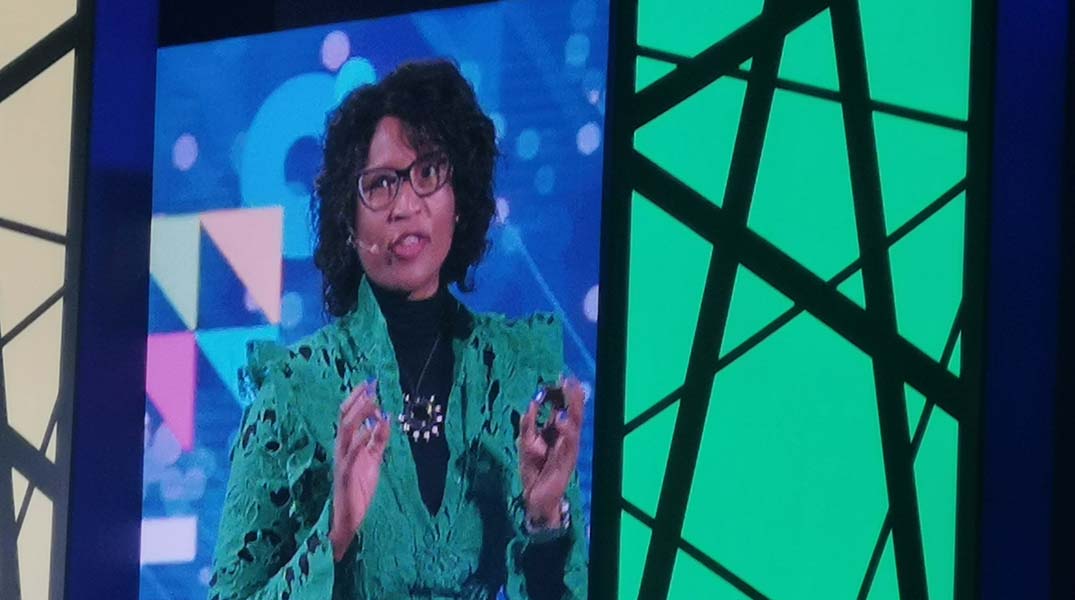Kathy Gibson reports from Saphila – There has never been a more important time to talk about artificial intelligence (AI).
“AI is making headlines all over the world,” points out Kholiwe Makhohlosi, newly-appointed MD of SAP southern Africa, opening Saphila 2023 in Sun City this morning.
But the concept of AI is useless unless it is deployed properly.
“SAP is looking to implement AI confidently, mindfully and responsibly,” she says
Sustainability is another major issue, and one that African companies are grappling with – particularly whether it is relevant for organisations in the developing world.
“While we are working to ensure that a sustainable future is relevant for every business, we need to think about that in the African context is important.
“Companies like SAP and its partners have a major role to play in these and other issues facing African business,” Mokhohlosi says.
In his keynote address at Saphila 2023, entrepreneur Vusi Thembekwayo, outlines the many challenges facing African businesses, and how they can turn them into opportunities.
He points out that a number of major events have brought the world to the place it is now – including terrorism, war, a pandemic and extreme climate among others.
At the same time, there has never been a better time to be alive: people live longer and are wealthier than ever before.
In the South African context, our economy has shifted radically in the last couple of decades, from an agrarian economy, to industrial, and now with services emerging.
Technology, of course, plays a major role in changing business and economic models, Thembekwayo points out.
“As we build the future of our businesses, e need to truly understand the context in which we operate,” he says.
The next step is to recognise which competencies you need to retain within the organisation, and which should be stripped out.
Often what holds us back in our business is that people and companies see what is in front of them and don’t share collective intelligence to see the full picture.
“This is why small businesses often disrupt big organisations, because they can see the big picture.
“The solution – and the challenge is to build a systems of sharing collective intelligence. Sharing and collaborating – but most importantly, trusting one another.”
To identify data that can be trusted means organisations need to shift from studying demographics to looking at psychographics. “Many are still trying to reference the customer in terms we understand.”
They also need to understand that customer values are changing in terms of their identity, wealth, and legacy.
For instance, Thembekwayo explains, many organisations are stuck in the archetype of binary ideas – and this means they have to challenge how they engage with this question.
“The final move we need to make is to questions what we are seeing.”
Analytics will reflect what happened in the past – and this becomes the standard. “We need to push beyond the concept of the standard, beyond what is past.
“We spend a lot of time looking at what we know about the past, and extrapolating how this translates into insight. But what we need to do is gain foresight.”
According to Thembekwayo, there are four laws around building a future business. They are:
* Be obsessed with finding the truth – not a particular version of the truth;
* The aim should be to be the best at what you do – not necessarily the biggest;
* Vision excites people – not numbers; and
* Lead by business case – which can be hard because it often goes against the way things are done today.

